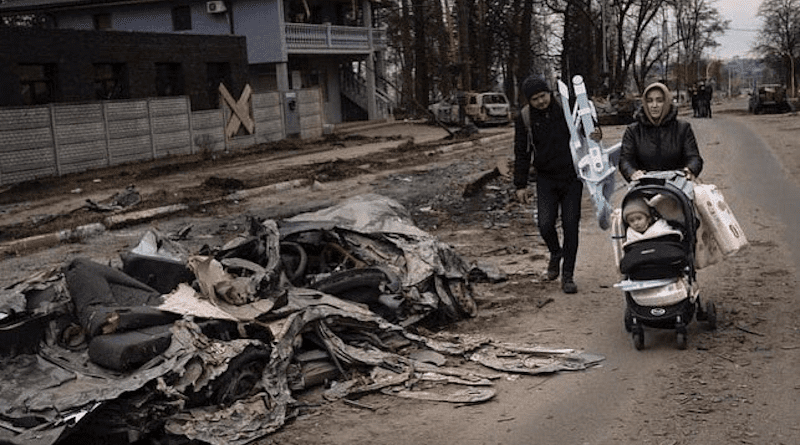Crimes Of Russian Forces In Ukraine Recall Those Of Soviet Troops In Eastern Europe In 1945 – OpEd
By Paul Goble
The war crimes and crimes against humanity Russian forces are committing in Ukraine now are the latest echo of those Soviet troops committed in Eastern Europe at the end and immediately after World War II, Dimitry Savvin says, a continuity the West is unwilling to see.
Some in the West dismiss the latest actions as “excesses;” but others seek to blame what they see as Vladimir Putin’s turn to fascism, the editor of the Riga-based conservative portal says. Both these positions miss the point: the number of such crimes is too large to be “excesses” and they resemble what Soviet forces did in 1945 (harbin.lv/pokayanie-kotoroe-nuzhno-vsem).
If the West is to deal with it, Savvin says, its leaders and peoples must recognize that in this way as in so many others, the Putin regime is “an organic continuation of the Soviet system,” one with many of the same structures and even the same people. It is not some new fascist regime but rather an extension of that past.
But people in the West “stubbornly refuse to talk about neo-Sovietism for the simple reason that references to Putin’s ‘fascism’ are very convenient.” It makes him and the Russian responsible and distracts attention from the responsibility for this development that lies with the West itself.
The reason is obvious: if the West views Putin’s regime as neo-Soviet, then the question becomes inevitable: how was this possible? And there is an answer: “neither in 1945 nor in 1991 did the US, Western Europe or the entire world condemn totalitarianism as such.” Instead, they divided it between the bad, that is, Hitler’s, and the less bad, that is the communist variants.
That failure not only allowed neo-Sovietism to appear in Russia but permitted communist parties to flourish in Europe and communist China to rise and now threaten its own people with concentration camps and the West with economic and military defeat, the conservative Russian nationalist says.
“It would be a mistake to think that such a situation is explicable exclusively by a naked balance of forces,” Savvin argues. “In 1991, when the socialist camp headed by the USSR collapsed and China was not yet as strong … there was a completely realistic chance to condemn totalitarianism as such.”
“But this simply didn’t happen.” Indeed, “no one even attempted to do so seriously,” because the notion that totalitarianism was of two kinds, the bad Nazi kind and the less bad Soviet one. “Now, however, the fruits of this amoral shortsightedness and false pragmatism have come to fruition, from Taiwan to Lviv and from Australia to Riga.”
According to Savvin, “the re-Sovietization of the Russian Federation is not simply a PR game. It is a logical outcome,” and it involves foreign military expansion. It isn’t as if the West weren’t warned. “The Baltic countries and the East European ones did so frequently,” but they were ignored and their warnings dismissed as special pleading or worse.
There can be no question that Russians must repent of what they have done in Ukraine and elsewhere, but there also is no question that the West must repent of its mistake policy of dividing totalitarianisms into bad and less bad categories, Savvin concludes, sadly noting that the prospects for either at present are far from good.

